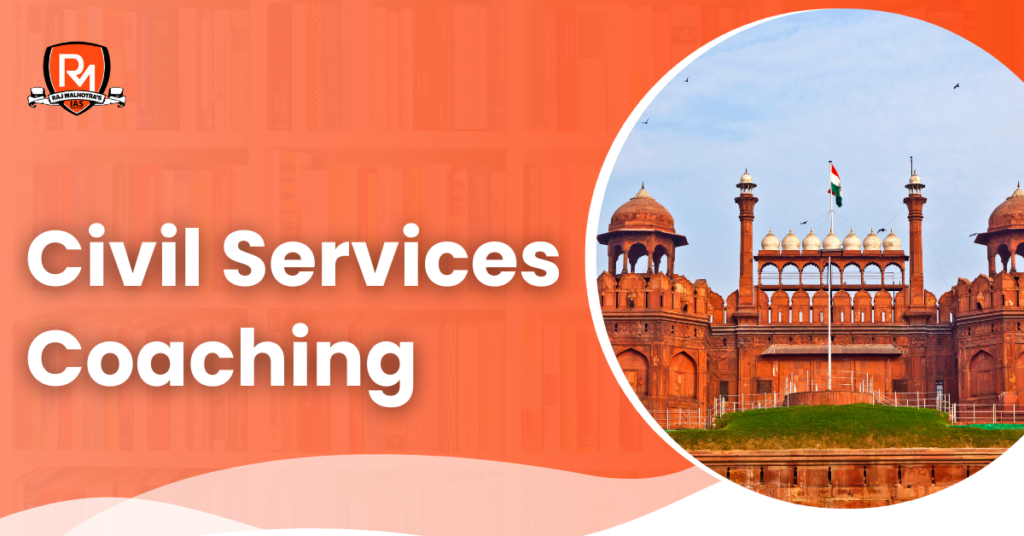The UPSC Civil Services Examination is the gateway to a prestigious career in the Indian bureaucracy. It’s a highly competitive exam with three stages: Prelims, Mains, and Interview. Being one of the toughest exams in the world, UPSC preparation requires proper guidance and civil services coaching. Raj IAS Academy is here to guide each aspirant in their UPSC journey!
This guide provides a glimpse of each stage for UPSC preparation and maximises your chances of success.
Understanding the Syllabus and Strategy
- Know the Syllabus: Before starting UPSC preparation, thoroughly understand the UPSC syllabus for each stage. This helps students focus on relevant topics and avoid wasting Time. The UPSC website provides the official syllabus as well.
Listen to one of Dikshant Sharma sir’s podcasts. He emphasises the importance of regularly checking the official UPSC portal for notifications.
Develop a Smart Strategy: Create a personalised study plan to cover the UPSC syllabus that outlines your resources, schedule, and approach. Consider factors like your learning style and time constraints. If you feel confused at the first stage, that is entirely okay. Just restart again or talk to your teachers.
Building a Strong Foundation
- NCERT Textbooks: To start your UPSC preparation, begin with NCERT textbooks from Class 6 to Class 12. They offer a clear understanding of foundational concepts across various subjects.
Read more here: The Best NCERT Foundation Course for UPSC.
Subject-Specific Resources: Gradually move on to standard reference books and study materials recommended for each subject in UPSC syllabus. Our expert faculty guides each student with such books, updated notes, and study material.
Mastering Current Affairs
- Newspaper Reading: Develop a habit of reading a reputed national newspaper daily. Focus on editorials and articles related to the UPSC syllabus.
2. Magazines and Websites: Supplement your newspaper reading with relevant magazines like Yojana and Kurukshetra and online resources for current affairs updates.
Effective Note-Taking Techniques
- Selective Highlighting: During your first reading, highlight key points in your textbooks. Avoid excessive underlining.
2. Active Note-Taking: In your second reading, create concise notes that summarise important concepts and connections between subjects. Use bullet points and diagrams for better recall.
Preparing for the Prelims
- Focus on Overlap: Prioritise subjects that overlap with the Mains syllabus to optimise your study time.
- CSAT Practice: For the CSAT paper, practice solving previous years’ question papers to improve your logical reasoning and analytical skills.
3. Mock Tests: Take mock tests regularly to assess your progress, identify weaknesses, and get familiar with the exam format.
Answer Writing for the Mains
- Content and Structure: Focus on delivering well-structured and informative answers. Practice writing concise and relevant content within the time limit.
- Template Creation: Develop templates for commonly asked questions to save Time during the exam.
- Practice Makes Perfect: Regularly practice answer writing using previous year’s question papers or essay topics.
Visit our YouTube channel to listen to podcasts featuring Raj Malhotra sir and other experienced teachers who address your questions about the UPSC Mains exam and optional subjects.
UPSC Optional Subject Selection
- Interest and Background: Choose an optional subject that interests you and aligns with your academic background. If needed, consider available coaching options.
2. Overlap with GS: For better synergy, look for an optional subject that overlaps with the General Studies (GS) paper.
Preparation for Interview
- Detailed Application Form (DAF): Carefully review your DAF, as interviewers may ask questions based on the information you provide. Prepare answers beforehand.
- Current Affairs Expertise: Stay updated on current events for at least three months before the interview. Deliver concise and well-informed answers.
- Syllabus Recall: Revisit the entire UPSC syllabus for Prelims and Mains. The interview assesses your holistic understanding of governance and social issues.
- Situational Questions: Prepare for questions that test your understanding of an IAS/IPS officer’s role and responsibilities.
- Subject Proficiency: Be prepared for in-depth questions about your graduation subject and optional subject. Highlight recent developments in your chosen field.
Applying for the UPSC Exam
- Online Application: Visit the official UPSC website (https://www.upsc.gov.in/) and follow the online application process.
- Registration and Fee Payment: Complete the online registration, upload the required documents, and pay the application fee.
Remember, the UPSC exam demands dedication, perseverance, and a strategic approach. You can achieve your dream of becoming a civil servant with consistent effort and the right guidance.
Additional Tips:
- Stay Motivated: Surround yourself with positive influences and celebrate your achievements.
- Manage Time Effectively: Develop a time management strategy to cover all subjects efficiently.
- Seek Guidance: Consider joining civil services coaching institutes like Raj IAS Academy for additional support and structured learning.
- Maintain a Healthy Lifestyle: Prioritise a healthy diet, regular exercise, and adequate sleep to optimize focus and retention.
This guide should equip you with the knowledge and strategies to excel in the UPSC Civil Services Examination. Aspirants sometimes ask whether or not to join any IAS Coaching. It’s completely a choice for the student. However, UPSC is a challenging journey that requires a proper study strategy with the guidance of expert teachers and mentors. That’s where civil services coaching helps UPSC aspirants. Raj Ias Academy believes in quality education for every student, so we put our best effort into helping you achieve your dreams.






